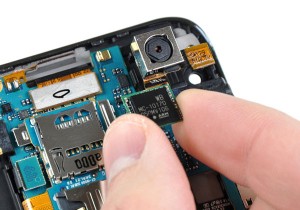
ARM processors are used mostly in smartphones, but Boston Limited is offering a service through which developers can port existing x86 applications to work on ARM servers, which can then be tested via a cloud service.
As part of the effort, Boston is partnering with software company Ellexus to help developers port the code to ARM servers, and is offering, via the cloud, quad-core ARM processors on which the ported code can be tested. This reduces the need for companies to purchase ARM servers to test code.
“We are not targeting users who wish to host services in the cloud — Web or mail etc. — this is really designed for companies or software developers to get access to ARM servers, fully loaded with development libraries and profiling tools, to assist them with migrating to ARM,” said Apostolos Lambrianides, a marketing executive at U.K.-based Boston, in an email.
ARM processors are widely used in smartphones and tablets, but are drawing interest for use in servers to process high volumes of Internet transactions tied to search and social media. ARM cores typically draw less power than x86 server processors, and are thus seen as an efficient way to process Web requests. But ARM has virtually no presence in the server market, and most of the server software development is taking place for x86 processors like Intel’s Xeon or Advanced Micro Devices’ Opteron.
Companies are approaching ARM servers with caution as there are still many hardware and software issues to overcome. ARM cores are capable of only 32-bit addressing, while x86 processors are 64-bit, which allows for larger memory and storage support. ARM servers do not interoperate with x86 chips, and thus would require a separate infrastructure in data centres, for which companies would need to invest. Another problem is the lack of a software ecosystem, which Boston hopes to address with its new service.
Boston is one of the few companies commercially selling ARM servers today. Top server makers Hewlett-Packard and Dell are offering experimental ARM servers for customers to test code and benchmark. ARM’s CEO Warren East in a recent interview said he expected the ARM server market to be viable starting in 2014.
ARM has already announced 64-bit processors called Cortex-A57 and Cortex-A53. The processors are based on the ARMv8 64-bit architecture.
Boston sees the challenges it faces in trying to unseat the dominance of x86 processors, but the company forecasts potential for ARM in servers. Some software companies have been in touch with Boston about the Viridis ARM server, in order to start porting software, Lambrianides said.
“Quite a significant number of these companies did not want to invest up-front in buying and managing our service, which is where the cloud offering comes in. The service was created in response to this demand,” Lambrianides said.
Boston is providing access over the cloud to a quad-core EnergyCore chip from Calxeda, which has ARM’s Cortex-A9 processor. The chip also has networking, I/O and other components. Calxeda in the future will release a 64-bit ARM chip.
Porting x86 code to ARM could be surprisingly easy, if the code is written in a way that is conducive to porting and the necessary tools are accessible, said Rosemary Francis, managing director of Ellexus, in a blog entry on ARM’s website.
Many tools such as applications and libraries are already built into the latest Linux distributions like Fedora and Ubuntu, Francis said. However, if there are issues, Ellexus’ Breeze program helps troubleshoot scripts and tools by tracing all programs to extract file dependencies and environment settings, Francis said.
There is growing software support for ARM. Perhaps the most visible is Linaro, an ARM-backed organisation that develops open-source software for ARM processors that includes drivers, tools and graphics interfaces. The software ultimately goes into Linux distributions. ARM already supports the OpenStack cloud OS. Companies like Cloudera, Citrix and Oracle developing ARM 64-bit versions of their software. Oracle is developing a 64-bit ARM version of Java Standard Edition.





